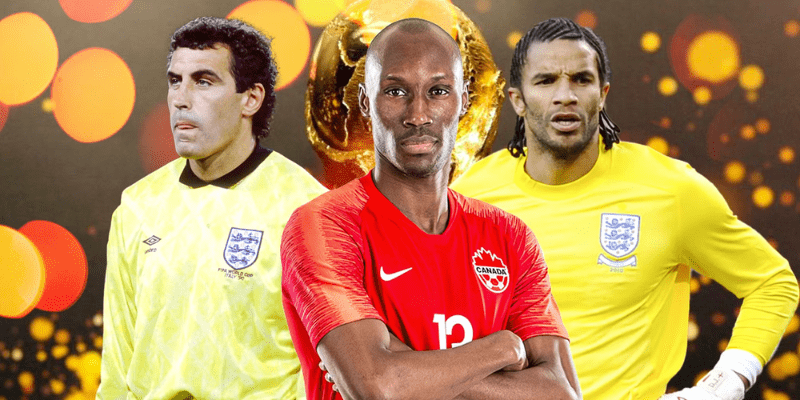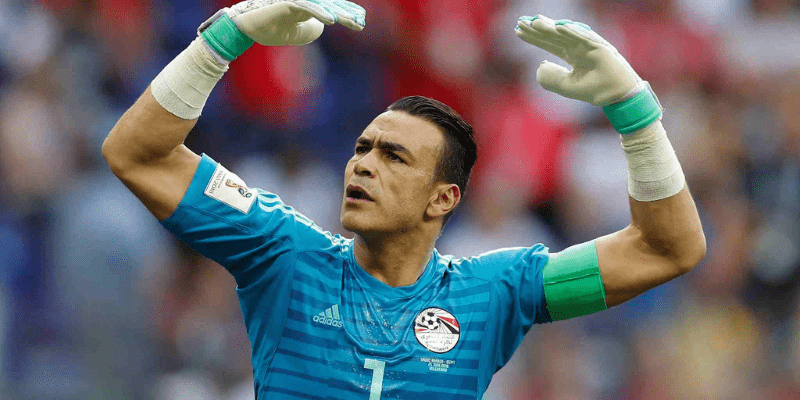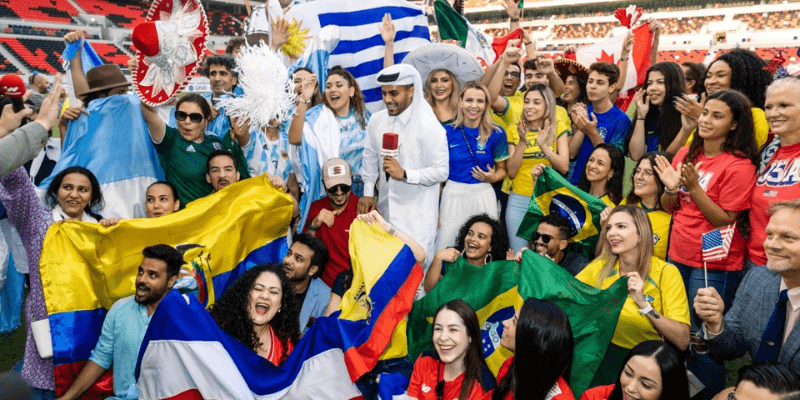When the roar of the crowd echoes through packed stadiums and spotlights bathe the pitch, it’s usually the young stars who steal the headlines. But sometimes the most unforgettable moments come, ZaneyStrike takes you on a journey through football history’s grey-haired heroes — the oldest players to play in World Cup finals matches — and unearths the stories, stats, and records behind these legends.
The search for ageless legends

As we scroll through decades of World Cup lore, a clear pattern emerges: the majority of top-age players are goalkeepers. After all, between the posts, reflex strength and positional intelligence often age more gracefully than blistering sprints down the wing. Still, a few outfield players broke through, reminding us that age is just a number. Below, we’ll break down the top-ranked veterans who defied expectation to step onto the biggest stage in international football.
The top 10 oldest players in World Cup history
Here’s a breakdown of the ten oldest footballers to ever play in a FIFA World Cup finals match (i.e. not qualifiers). Several names may surprise you, even longtime fans.
| Rank | Player | Country | Age (years, days) | World Cup edition(s) | Position / Notes |
| 1 | Essam El-Hadary | Egypt | 45 years, 161 days | 2018 | Goalkeeper — holds the absolute record |
| 2 | Faryd Mondragón | Colombia | 43 years, 3 days | 2014 | Goalkeeper, made a late substitute appearance |
| 3 | Roger Milla | Cameroon | 42 years, 39 days | 1994 | Outfield: striker, scored a goal at 42 |
| 4 | Pat Jennings | Northern Ireland | 41 years, 0 days | 1986 | Goalkeeper, played on his 41st birthday |
| 5 | Peter Shilton | England | 40 years, 292 days | 1990 | Goalkeeper, in 3rd place playoff |
| 6 | Dino Zoff | Italy | 40 years, 133 days | 1982 | Goalkeeper and World Cup winner |
| 7 | Ali Boumnijel | Tunisia | ~40 years, 38 days | 2006 | Goalkeeper |
| 8 | Jim Leighton | Scotland | ~39 years, 310 days | 1998 | Goalkeeper |
| 9 | David James | England | ~39 years, 306 days | 2010 | Goalkeeper |
| 10 | Atiba Hutchinson | Canada | ~39 years, 288 days | 2022 | Outfield midfielder |
A few remarks on certain names:
- Essam El-Hadary became the oldest player ever in World Cup history when he started Egypt’s final group match against Saudi Arabia in the 2018 tournament, at age 45 years and 161 days. While it was his first World Cup appearance, it etched his name in record books.
- Faryd Mondragón had long held the record before El-Hadary. Entering as a substitute in Colombia’s 2014 match vs Japan, he became the oldest to play in the finals at 43 years, 3 days.
- Roger Milla is the standout among outfield players — at 42+ he even scored in that match, making him the oldest goal-scorer in a World Cup finals game.
- Dino Zoff holds a unique place: not only did he play at over 40, but he also captained Italy to World Cup glory in 1982, making him the oldest World Cup-winning player ever.
These names consistently appear when analysts compile lists on this topic.
Deep dives: stories behind the records

Essam El-Hadary: the Egyptian ironman
By 2018, El-Hadary was a household name in African football. But on June 25, 2018, he shattered all expectations by becoming the oldest player to ever play in a World Cup, at age 45 years, 161 days. In that match, he saved a penalty (first African keeper to do so in finals) before conceding from a second and conceding again late as Egypt lost 2–1. Despite the defeat, El-Hadary’s legacy transcended the result—his longevity, leadership, and sheer willpower define what it means to succeed beyond age.
Faryd Mondragón: record-breaker and gap-defier
Mondragón’s record was as much about perseverance as age. In 2014, he came off the bench in Colombia’s final group game against Japan to break the then-record of oldest World Cup finals player. What makes his story even richer? His previous World Cup finals appearance was in 1998 — a staggering 16 years earlier — giving him the longest gap between two finals appearances in World Cup history.
Roger Milla: dancing beyond the twilight
Milla needs little introduction: his corner-flag dance is etched in football folklore. At 42, not only did he become the oldest field player in a World Cup, he also scored — another record. His performance in 1994 turned what many expected to be a farewell cameo into one of the most joyful stories in tournament history.
Dino Zoff: ageless captain with silverware
The only name on this list who truly combines age with success. At 40+ years old, Zoff not only played, but captained Italy to their 1982 World Cup title. That makes him the oldest World Cup winner, and perhaps the greatest example of how experience can still deliver greatness.
What enables such longevity?
Several factors contribute to players stretching their careers into their 40s at the highest level:
- Position matters: Most are goalkeepers or occasionally defenders/midfielders. Their role relies more on positioning, anticipation, and reading the game than raw speed.
- Physical upkeep: Elite conditioning, diet, injury management, and adaptation of playing style help preserve careers.
- Mental strength and leadership: These veterans often bring calm, authority, and mentorship—assets beyond physical attributes.
- Selective involvement: Some join squads not to start every match but to provide backup or momentary appearances, ensuring they remain part of the journey without being overtaxed.
Because of that, even a player not in peak physical shape can still contribute with crucial saves, timely reactions, or steady leadership under pressure.
Other notable mentions and edge cases
- Women’s World Cup: The oldest player ever in the Women’s World Cup finals is Brazilian midfielder Formiga, who played at age 41 years and 112 days in 2019.
- Qualifiers and regional competitions: Some players have turned out in qualifiers well into their late 40s or even 50s, but those do not count toward the World Cup finals records.
- Oldest goal-scorers in knockout rounds: Among knockout stage matches, Pepe held a record by scoring in his late 30s (though not up to 40+).
- Oldest debutants: Some legends made their very first World Cup appearance relatively late in life, but combining that with the oldest to play list is rare.
These caveats show the intelligence needed in interpreting the record: world finals count, but qualifiers, debuts, and women’s competitions also carry their own legacies.
Why fans love these records

Records like “oldest to play in World Cup” strike at the heart of what we love in sports: drama, perseverance, defiance of limits. They remind us that even as time ticks on, legends can still write unforgettable chapters. For young fans, these stories become the lifeline to history. For seasoned followers, they bring back nostalgia and deepen respect. And for all, they underline one truth: passion, discipline, and willpower matter as much as talent.
So when we see elder statesmen like El-Hadary standing firm in goal, or Milla sneaking a shot past defenders at 42, or Zoff lifting the cup past 40 — those are details that echo through trivia, debates, and “best-of” lists forever.
Final Thoughts
Today, ZaneyStrike guided you through the legends of football who shattered age norms — the oldest players to play in World Cup finals. From Essam El-Hadary’s record to Roger Milla’s striker feat to Zoff’s captain’s victory, these players didn’t just reach milestones — they redefined them.
If you loved this deep dive, explore our pages on youngest World Cup players, most caps, or top-scoring legends. Dive deeper, quiz your friends, and never forget that football’s greatest tales often come






